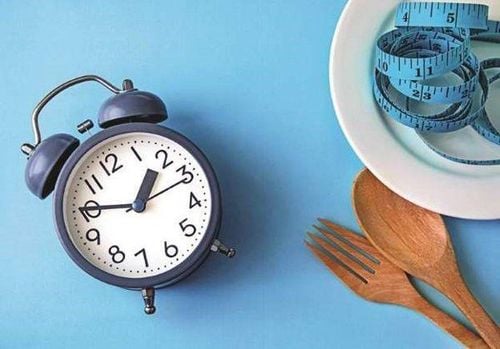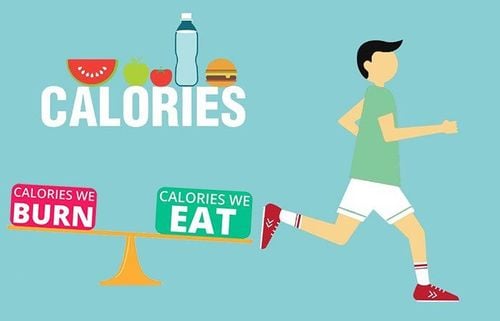Your body requires energy every day to maintain its activities and the functions of its organs. So, what happens if you refrain from eating entirely for one day? If you are having the same question, be sure to read the following article.
1. What is complete fasting?
Continuous fasting for 24 hours is a form of intermittent fasting. During the 24-hour fasting period, you can only drink water. After a day, you can return to your normal diet until the next fasting period. In addition to losing weight, 24-hour fasting also has a positive effect on your body's metabolism, improving cardiovascular health, and more. You should use this method 1-2 times a week to ensure safety for your health.
This method may seem easier than cutting down on daily calorie intake. However, you will likely experience significant hunger on fasting days. Moreover, complete fasting can cause serious complications in people with poor health conditions. Therefore, if you intend to practice this complete fasting method for a day, you should consult your doctor. Your doctor will advise you on the benefits and risks that this method may have on your body.
2. What happens to the body when fasting for 24 hours?
Many people wonder how the body functions when fasting completely for 24 hours. In fact, you will be completely healthy for 24 hours before your body realizes you are fasting.
In the first eight hours, your body will continue to digest the last food. It will use stored glucose for energy and continue working as if you are still eating.
After eight hours without eating, your body will start using stored fat for energy and continue to use it to generate energy for the remaining 24 hours.
Fasting for more than 24 hours may cause your body to start converting stored protein into energy.
3. Benefits and risks of 24-hour fasting
Many people wonder if fasting can help you lose weight. In fact, this method has a certain effect on weight loss, but you still need to maintain a reasonable diet, combined with a workout routine. Let’s take a look at the benefits and risks before starting fasting for weight loss.

3.1. Benefits of 24-hour fasting
Weight loss
This is the most noticeable benefit of intermittent fasting. Fasting for 1-2 days a week helps you consume fewer calories. At the same time, this method is beneficial for your metabolism, helping you lose weight.
Control cholesterol and sugar levels
Regular intermittent fasting can help improve the way your body breaks down cholesterol and reduce the risk of developing conditions such as diabetes and cardiovascular disease.
Reduced risk of coronary artery disease
Frequent fasting for 24 hours can help lower levels of trimethylamine N-oxide in the long term. High levels of this compound are associated with coronary artery disease, so managing its levels could lower the risk of developing the condition. Additionally, complete fasting for a day brings many other benefits, such as:
-Reducing inflammation
-Preventing the formation and development of certain cancers
-Reducing the risk of neurological diseases such as Alzheimer’s and Parkinson’s
3.2. Risks of Practicing 24-Hour Fasting
Regular fasting for 24 hours can lead to side effects and some potential health issues.
Before starting any form of intermittent fasting, you should seek advice from a doctor. There are certain cases in which this approach may not be appropriate:
-Having a history of eating disorders
-Having type 1 diabetes
-Pregnant or breastfeeding women
-Children under 18 years old
-Patients in the recovery phase after surgery
-Fasting more than 2 days a week may increase the risk of arrhythmias and hypoglycemia.
4. How to Fast for 24 Hours Correctly
The 24-hour fasting method can be done at any time as long as you have prepared in advance for the fasting day. It is essential to consume healthy and well-balanced meals before fasting, as this will help your body get through the 24-hour period. Experts recommend consuming some of the following foods before starting intermittent fasting:
-Protein-rich foods: nut butter and legumes
-Low-fat dairy products
-Fruits and green vegetables
-High-fiber foods
-Drink plenty of water and other zero-calorie beverages during the fasting period.
-Do not overeat when it's time to resume meals and ensure you follow a nutritious diet once the fasting period is over.
To maintain good health while effectively and safely losing weight, you need to stick to a regular exercise routine combined with a balanced, healthy diet or follow the guidance of doctors and nutritionists.
To arrange an appointment, please call HOTLINE or make your reservation directly HERE. You may also download the MyVinmec app to schedule appointments faster and manage your reservations more conveniently.
Reference source: healthline.com













